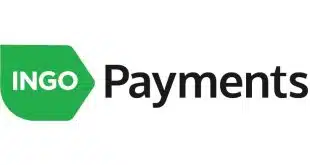Secure Vault Payments, an online-payments program that lets consumers pay merchants from their checking accounts via the automated clearing house network, is catching on as a way to pay tuition and other costs at the University of Georgia, which began using the method in July in time for fall-semester tuition bills. The Athens, Ga.-based school, which is among a variety of merchants and billers participating in an 18-month pilot for SVP conducted by NACHA, the regulatory body for the ACH, has so far seen 16% of all eligible students use the system to pay tuition, course and lab fees, meal costs, and housing fees. That's according to Kendall Myles, a senior vice president with eWise Systems USA Inc. who is heading up merchant and financial-institution recruitment for SVP. Denver-based eWise, a unit of the Australian software company by the same name, runs the transaction switch for SVP. Of this 16%, 57% have used SVP once, while 35% have used it two to four times and 8% have made between six and eight payments, Myles reports. Eligible students are those with accounts at a bank owned by Columbus, Ga.-based Synovus Financial Corp., a holding company for 39 banks. Synovus is participating in the SVP pilot. Myles won't disclose how many students the 16% figure represents, beyond observing that it's “a substantial portion of the student population.” That population comes to some 34,180 students. These results have buoyed expectations for SVP not only at the University of Georgia but at other schools as well. Optimism for the program, says Myles, stems from the fact that early adoption rates for alternative-payment products generally run much lower. “For any alternative payment, if you were to get 3%, 5% adoption, you'd say you're doing pretty good,” he notes. At the same time, the school achieved its adoption rate without any advertising. “They put SVP on their Web site as a payment mark, with a 'learn more' button, and payments started coming in,” Myles says. So far, more than 50 colleges and universities have signed letters of intent to use SVP, he adds. Myles, a founding investor and formerly an executive with payments-software vendor CardinalCommerce Corp. who joined eWise in the fall of 2007 to help build SVP for NACHA, has been concentrating on colleges and government agencies for more than a year (Digital Transactions News, Dec. 17, 2008). Colleges like the University of Georgia are interested in SVP because it's cheaper than card acceptance and offers real-time authorization, says Myles. Some schools have turned to e-checks on the ACH to avoid card discount fees, but have been frustrated by the lack of payment authorization, he says. Because of SVP's bank-sponsored authentication of consumers, it offers merchants guaranteed funds and real-time authorization, features not available with other ACH payments. With SVP, a consumer who chooses this option to pay at checkout is redirected to a log-in page for her online-banking program. After she authenticates herself, she is presented with a payment page summarizing the details of her purchase or bill payment. If she authorizes the transaction, she is directed back to the merchant's site and the switch instructs the merchant that it has good funds and can ship merchandise. The program levies an interchange rate of 1.35% on merchant payments and a flat fee of 50 cents on bill payments, payable by acquirers to authorizing banks. Government entities pay 40 cents. In addition, the program collects a switch fee from both sponsoring and authorizing banks, with a cap of 6 cents to each.
Check Also
Mobile Wallets And Payment Apps Are Favored for Different Uses, an Onbe Survey Finds
Diners visiting a fast-casual restaurant—think Chipotle, Five Guys—are more likely to choose a mobile wallet …




